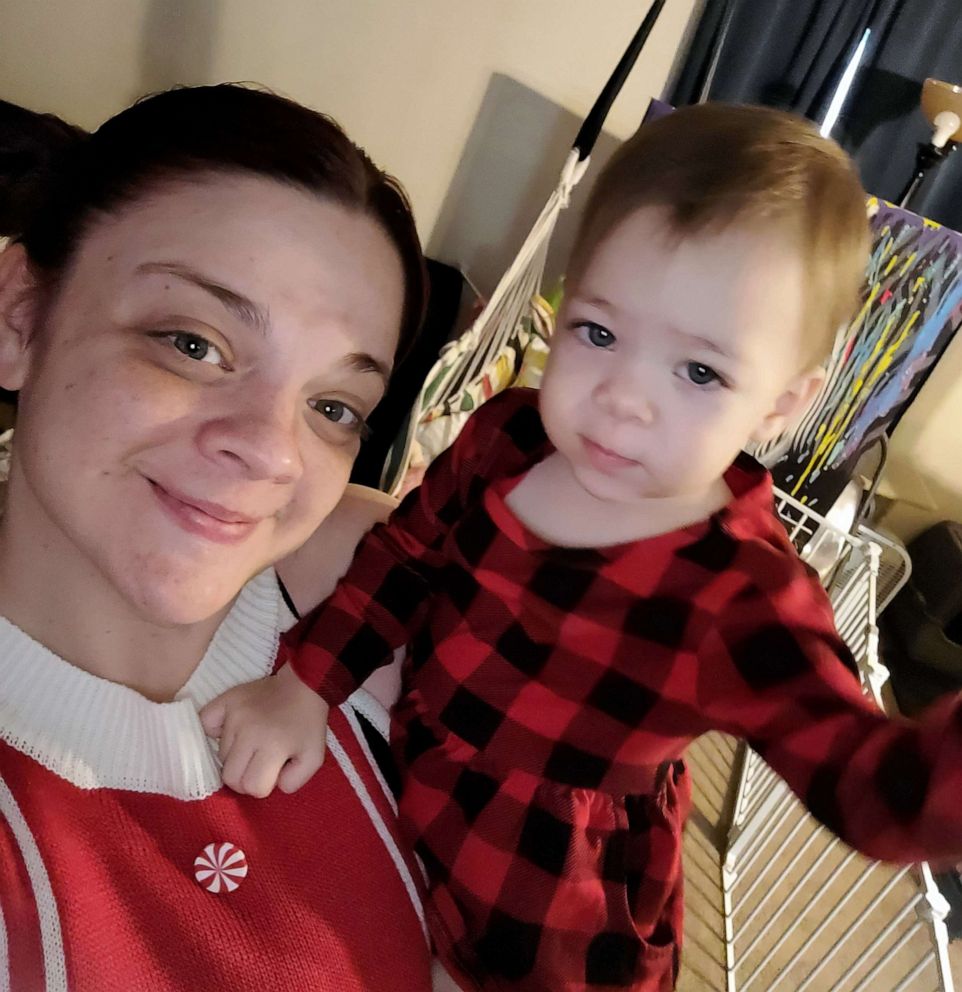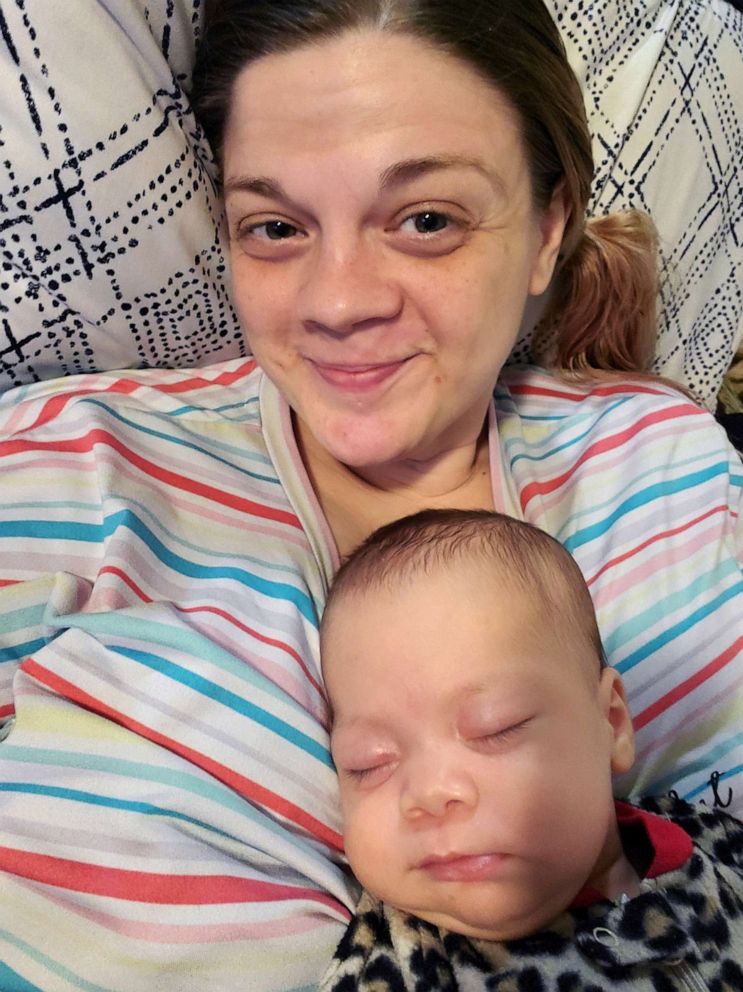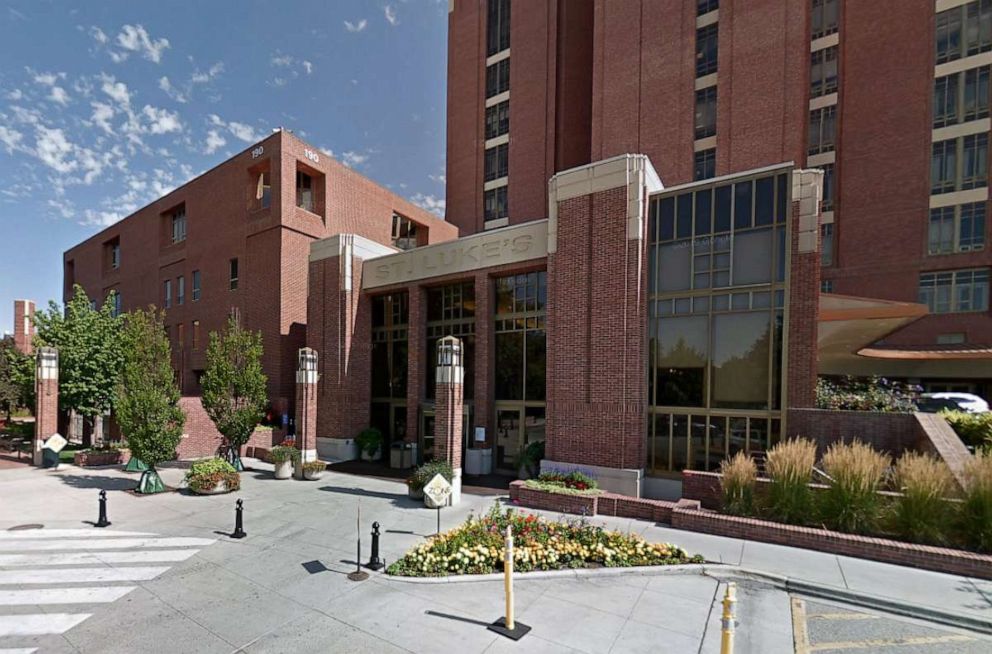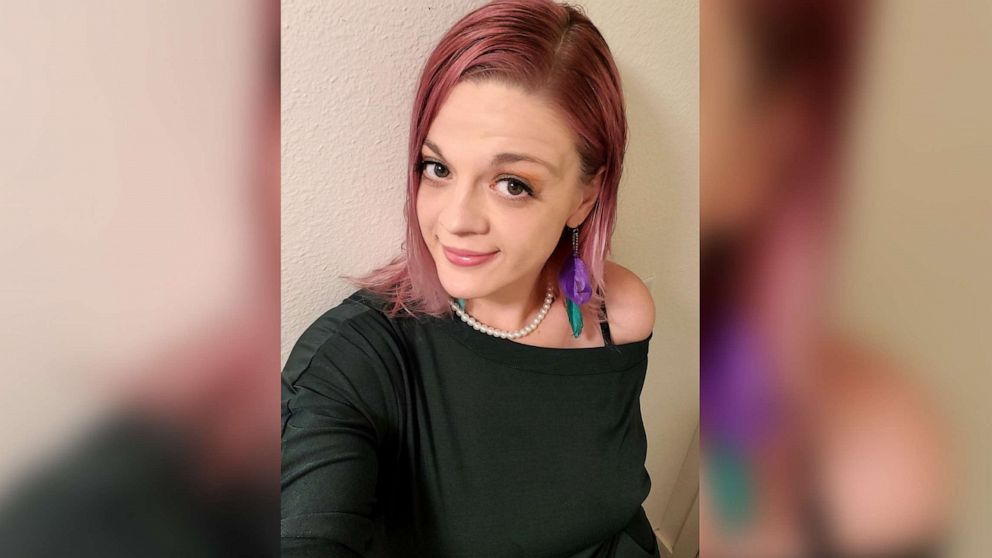
Idaho woman shares 19-day miscarriage on TikTok, says state's abortion laws prevented her from getting care
Carmen Broesder, 35, from Nampa, Idaho, shared her 19-day long miscarriage on TikTok after she said she was denied care due to Idaho's new abortion ban.
Carmen Broesder, 35, said she visited the ER three times before receiving care.
By Mary Kekatos
Video by Jessie DiMartino
January 21, 2023, 1:04 PM
An Idaho woman who documented her 19-day miscarriage on social media said it was days before she could receive care due to the state's strict abortion laws.
Carmen Broesder, 35, from Nampa -- 20 miles west of Boise -- a mother-of-one was just six weeks pregnant when she began miscarrying on Dec. 8. However, she said it took eight days before she was given any medicine to manage her pain and to expel embryonic tissue, and several more days for the miscarriage to end.
In a series of TikTok videos -- along with medical records, photos and videos shared with ABC News -- she said that despite bleeding heavily and suffering intense cramps, she was denied a dilation and curettage, or D&C, which removes tissue from inside the uterus, multiple times.
Because a D&C can also be used when providing abortion care, she told ABC News she believes it's directly tied to Idaho's abortion ban.
"Why should I get to death's door to get help?" Broesder said. "I am prepared to be a mother. I am a mother and I wanted to have another baby. That is my story and it almost killed me."

Carmen Broesder, 35, from Nampa, Idaho, with her daughter, Lucy, in an undated photo.
Carmen Broesder
Different than other miscarriages
After Roe v. Wade was overturned by the Supreme Court last summer, Idaho passed a strict near-total abortion ban in August 2022 with only exceptions for rape, incest or if a pregnant person's life is in danger.Broesder said she wasn't seeking an abortion when she went to the hospital the first time. She said she and her boyfriend had been trying to have a second child after the birth of her 16-month-old daughter, Lucy.
While trying to conceive, Broesder said she suffered other miscarriages, but she never experienced as much bleeding or as much pain as she did when she woke up on Thursday, Dec. 8.
"That was the most horrifying moment; I woke up and I had intense stomach pain," she said. "I couldn't stand up too much, and I go to the bathroom, and I was just bleeding. It was a horrific amount of blood loss where I instantly know this is not okay."
After the bleeding wouldn't stop with a 12-hour menstrual disc or with a super plus tampon, Broesder went to a local hospital. Broesder said she told staff she thought she was experiencing a miscarriage and after they checked her in, she said she waited for hours for someone to examine her.
She said staff eventually performed an ultrasound and confirmed there was no detectable heartbeat but, because she had an OBGYN appointment on Monday, Dec. 12, they advised her to attend as scheduled.
During the OBGYN appointment, Broesder said an ultrasound technician also confirmed the lack of a heartbeat and told her to come back for a follow-up in two days. ABC News reached out to the doctor's office for a comment on their care for Broesder but did not hear back.
'I'm going to die before someone helps me'
Broesder said she felt like something still wasn't right with this miscarriage. She was still bleeding heavily and in pain but did not receive any medication."I'm feeling like no one's listening at this point," she said. "These people are supposed to help. So, I went home and kind of just suffered through."

Carmen Broesder, 35, from Nampa, Idaho, in an undated photo. Broesder said after two unsuccessful ER visits, she finally received care after visiting a hospital in Boise.
Courtesy Carmen Broesder
Broesder said she felt like something still wasn't right with this miscarriage. She was still bleeding heavily and in pain but did not receive any medication either from the ER or her OBGYN.
However, the pain and the bleeding became so bad that Broesder went to the ER the next day, where she said she again waited for hours for someone to see her -- and where she made her first TikTok video about her miscarriage, which went viral.
"I've been actively miscarrying since the 8th," she said in the video, posted on Dec. 13. "I have gone to a doctor, and this is my second visit to the ER if you're wondering why women's rights matter. I'm just going to [expletive] bleed out on this table before somebody comes and actually helps me."
She said that she asked twice for a D&C, including from her own OBGYN.
OBGYNs told ABC News the "save the mother's life" exception of abortions bans -- which Broesder may have qualified for in Idaho -- is often vague and the language is unclear about what qualifies as a mother's life being in danger, what the risk of death is, and how imminent death must be before a provider can act.
Providers also may be worried about providing miscarriage care because it could be misconstrued as providing abortion care, and they could face legal repercussions.
"That's the optimal scenario, that doctors are able to provide the care that's necessary and evidence-based," Dr. Beverly Gray, an obstetrician and gynecologist at Duke Health in Durham, North Carolina, who was not involved in Broesder's care, told ABC News. "I worry about other systems that are worried about how they could come under attack for taking care of a patient or could a doctor that's caring for the patient be prosecuted in some way. I think these are real fears that people are facing."
Broesder was told by the second hospital that she had a complete miscarriage and was given tranexamic acid, medicine that controls bleeding and helps prevent excessive blood loss, according to medical records reviewed by ABC News, and sent home.
The hospital network, answering on behalf of both hospitals Broesder visited, said that "due to federal and state privacy laws, we cannot confirm nor deny that this patient was seen at our facilities" but that it "provides such medical care as required under the Emergency Medical Treatment and Labor Act" when a pregnant woman suffers a medical emergency that requires the pregnancy to be terminated.
During this time, Broesder said she thought she was going to die.
"I was in so much pain I didn't know how much more my body could take," she said. "I had gone to the ER twice and I got turned away. I go to the OB, and I got turned away. I knew I couldn't afford much more visits for longevity afterwards to keep my family afloat. So, I was just like, well, it is what it is."
Finally receiving care
By this time, her very first TikTok video had gone viral – the app shows it currently has more than 620,000 views - and she had been making more videos to keep those following her story updated.She said many of her new followers told her to go to the ER again and, on Dec. 16, she decided to drive to St. Luke's Boise Medical Center, where she was given a room and seen by a nurse.
Broesder said she requested a D&C and was denied again.
Dr. Frank Johnson, chief medical officer at St. Luke's Health System covering Boise, Elmore and McCall, who did not treat Broesder but spoke about her case with ABC News, said "looking over this particular situation, there was no additional need for an interventional procedure by the time that she arrived here at St. Luke's."

In this screen grab taken from Google Maps Street View, the St. Lukes Boise Medical Center in Boise, Idaho, is shown.
Google Maps Street View
Last edited:




